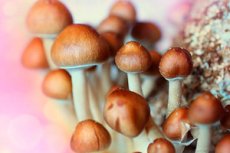New publications
Psilocybin is effective in treating symptoms of depression
Last reviewed: 02.07.2025

All iLive content is medically reviewed or fact checked to ensure as much factual accuracy as possible.
We have strict sourcing guidelines and only link to reputable media sites, academic research institutions and, whenever possible, medically peer reviewed studies. Note that the numbers in parentheses ([1], [2], etc.) are clickable links to these studies.
If you feel that any of our content is inaccurate, out-of-date, or otherwise questionable, please select it and press Ctrl + Enter.

New research from UK scientists suggests that psilocybin – the active ingredient in so-called 'magic mushrooms' – is an effective treatment for depression.
Research published in the journal BMJ found that psilocybin was more effective in reducing symptoms of depression among study participants than placebo, niacin (vitamin B3) or microdoses of psychedelics.
The study's authors said in a statement that depression affects about 300 million people worldwide and is a leading cause of disability.
Researchers say psilocybin has shown promise in reducing symptoms of depression after one or two doses, with few side effects and no current evidence that the substance is addictive.
They also said that published studies so far have not considered factors that might moderate psilocybin's effects, including dosage, type of depression, past experience with psychedelics, and publication bias.
Details of the study of psilocybin and depression A team of British researchers searched databases for randomized controlled trials comparing psilocybin as a treatment for depression with other substances.
They also looked at studies that used psychotherapy in both experimental and control conditions to distinguish the effects of psilocybin from those produced by psychotherapy. They selected seven studies that were relevant to their analysis, involving 436 depressed subjects (52% were women and 90% were white).
The researchers measured changes in depression scores using a statistical method called Hedges' g coefficient. A Hedges' g coefficient of 0.2 indicates a small effect, 0.5 a moderate effect, and 0.8 or more a large effect.
The researchers reported that the change in depression scores after psilocybin treatments was significantly greater than with the proven comparator, with an overall Hedges' g of 1.64 – indicating a significant effect in favor of psilocybin.
The scientists concluded that while their results are encouraging for psilocybin's potential as an effective antidepressant, issues such as legal safeguards, as well as cost and the lack of regulatory guidelines, need to be addressed before psilocybin can be established in clinical practice.
The researchers concluded that the study's findings "support a prudent approach in both scientific and public settings because more and better data are needed before any clinical recommendations can be made about the therapeutic use of psilocybin."
Reaction to Depression and 'Magic Mushroom' Study Dr. Akanksha Sharma is a neurologist, neuro-oncologist, and palliative care physician at the Pacific Rim Neuroscience Institute in Santa Monica, California.
The study was published in the journal BMJ
